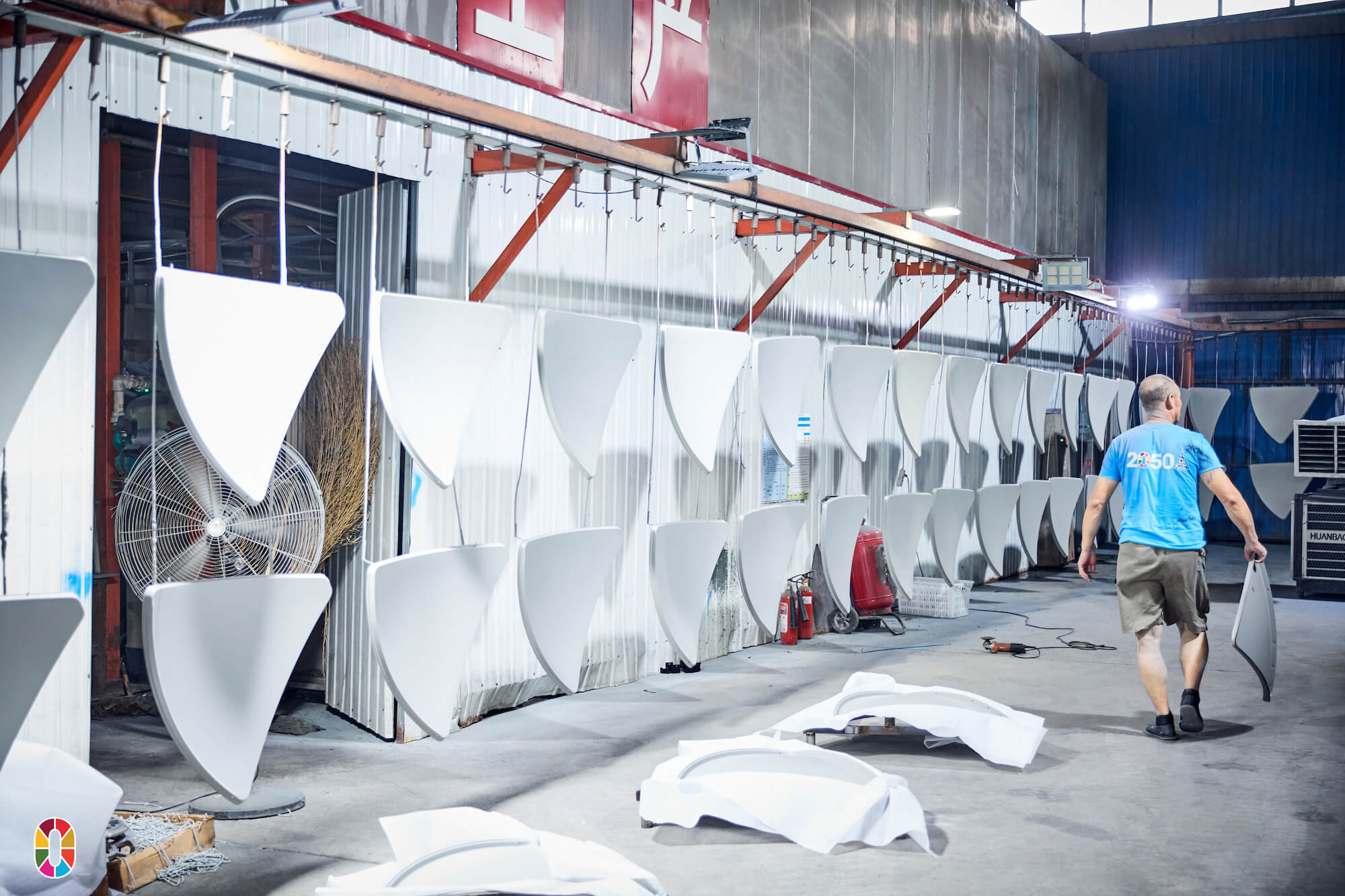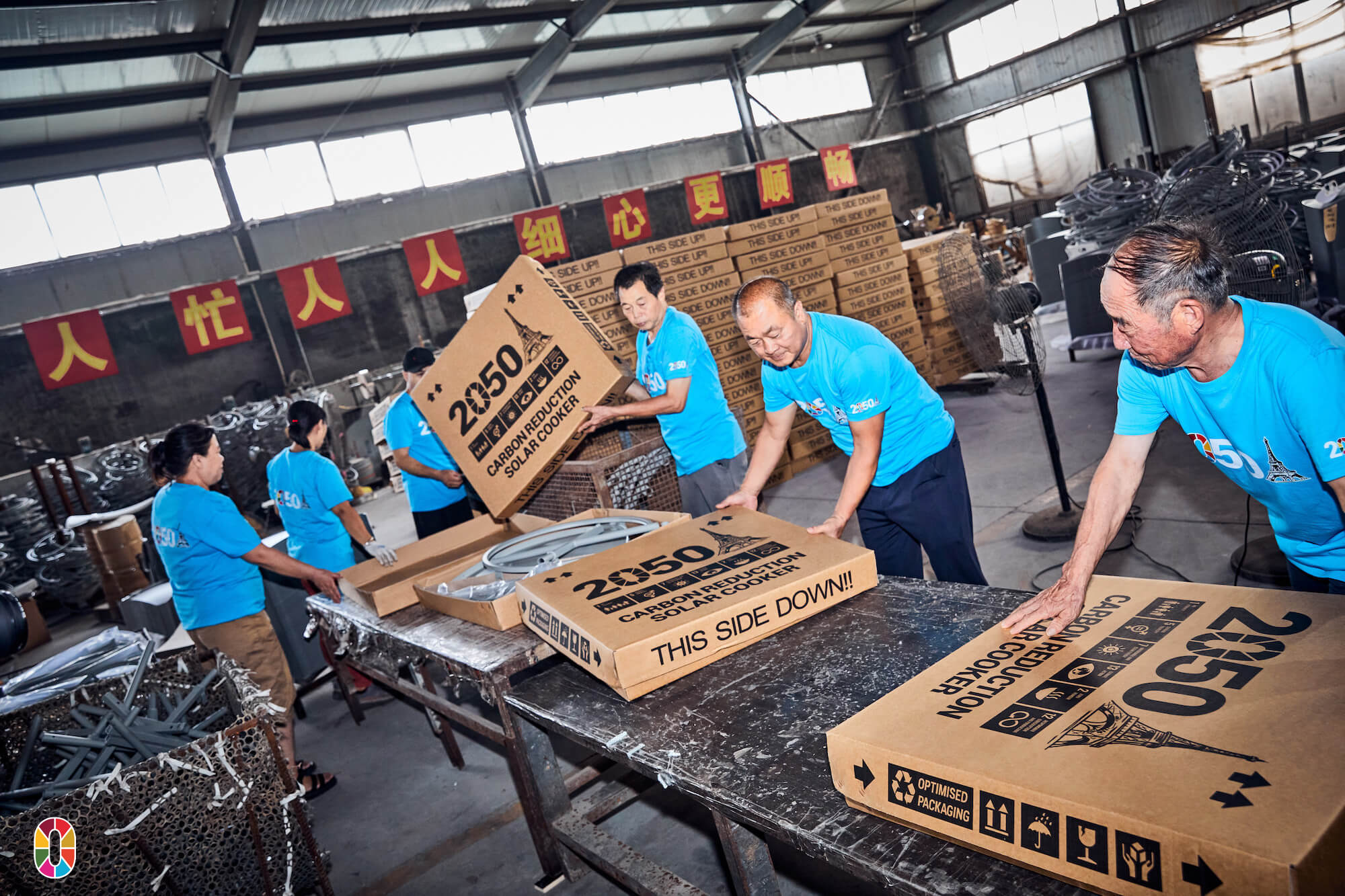Solar Cookers for Eco Friendly Cooking
Crafting Solar Cookers: From Design to Creation, Unveiling the Manufacturing Process
The process of its creation
Efficient Solar Cookers For Eco Friendly Cooking: Harnessing Sun Power for Eco-Friendly Cooking Solar cookers are manufactured for eco friendly cooking through a systematic process that involves careful design, selection of materials, and assembly. They incorporate reflective surfaces like mirrors to focus sunlight, heat-absorbing materials that convert solar energy into heat, and insulating layers to retain the heat.
Skilled technicians assemble these components into a functional unit, which then undergoes quality control checks. Afterward, the cookers are packaged for distribution. User guides provide instructions on setup and usage. The production aims to create a sustainable and efficient cooking solution that relies on renewable solar energy. It involves a balance of technological innovation, material durability, and environmental consciousness to ensure effective and eco-friendly cooking.


Minimise waste
Our solar cooker package is meticulously designed for optimal efficiency. We've prioritized size optimization to minimize waste and storage requirements while ensuring all components fit snugly. Additionally, our commitment to environmental sustainability extends to the choice of materials. We've opted for eco-friendly cart-board packaging that is both sturdy and biodegradable. This choice aligns with our values of reducing our carbon footprint and promoting eco-conscious practices. By utilizing eco-friendly cart-board, we contribute to minimizing the impact on the environment without compromising the safety and protection of the solar cooker during transportation.
Reducing Waste and Packaging
In accordance with the Sustainable Development Goals (SDGs), we are advocates for waste reduction and environmentally-friendly packaging. Our pioneering approaches encourage conscientious consumption and manufacturing, fostering a more ecologically balanced and inclusive future.
In this video, you'll get a glimpse inside our production facility.
Revolutionizes cooking with sustainable energy
Transformation through innovation
Crafting a solar Cookers For Eco Friendly Cooking involves a meticulous process of engineering and assembly. Reflective surfaces focus sunlight, while heat-absorbing materials convert it into usable heat. These components are thoughtfully combined by skilled technicians. Rigorous quality checks guarantee safety and efficiency. The end result is an innovative cooking solution that optimizes renewable energy, aligning technology with sustainability.
How a solar cooker is produced:
High-quality and durable materials are chosen for the cooker's construction.
Solar cookers incorporate reflective foils to concentrate sunlight onto the cooking area.
Solar cookers include absorbing materials to absorb solar radiation and convert it into heat.
Skilled technicians assemble the various components of the solar cooker.
Frequently asked questions
A solar cooker is a device that uses sunlight to cook food. It typically consists of reflective panels that focus sunlight onto a cooking area, where heat-absorbing materials convert sunlight into heat energy for cooking.
Solar cookers reduce the need for conventional cooking fuels, lowering carbon emissions. This positive environmental impact can be quantified and translated into carbon credits within carbon credit projects.
Solar cookers can be used to prepare a wide range of dishes, including vegetables, grains, legumes, and even meats. Cooking times may vary based on the type of food and solar cooker model.
Cooking times depend on factors such as sunlight intensity, type of food, and solar cooker design. Generally, solar cooking may take longer than traditional methods, but the energy savings are significant.
Solar cookers utilize renewable solar energy for cooking, reducing reliance on fossil fuels. This directly decreases carbon dioxide emissions associated with traditional cooking methods.
Solar cookers generally require minimal maintenance. Regular cleaning of reflective surfaces and keeping the cooker in good condition will ensure optimal performance.
While the initial investment may be higher than traditional cookers, solar cookers have no ongoing fuel costs. Over time, they can save money on cooking fuel expenses.
Net zero news
Discover the latest trends and insights within the sphere of environmental ecosystems and achieving carbon neutrality.